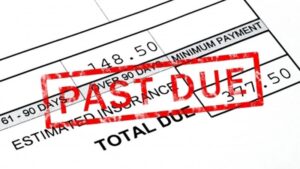Improved Business Models, Not Foreign Players, Will Save English Football
Over the past five months, I’ve posted several blogs highlighting the need for executives and club chairmen to change their business models if they want English football to maintain solvency.
It seems English Football League Chairman Greg Clarke may have been following these posts and taken some of my advice as he’s embarked on an ambitious plan to visit all 72 clubs under his jurisdiction to investigate how they can improve their business strategies.
In recent months, established clubs such as Liverpool, Portsmouth FC, Cardiff City and Southend United have all battled with liquidation, and last week Sheffield Wednesday fought off a High Court bid after accumulating £1.4 million in tax debts.
Clarke is encouraging lower league clubs to look at their finances and implement new schemes to control spending.
These include limiting spending to 55 per cent of player’s wages and possible adoption of the UEFA financial fair play regulations, which only allow clubs that break even financially to be eligible to play in European competitions.
Such far-reaching controls are long overdue. Far too many English football clubs are obviously insolvent and should not be allowed to trade.
Ordinarily, the directors of these organisations would face disqualification and their companies would be wound up – this is what happened to Terry Venables in 1998 after he was found guilty of manipulating Tottenham Hotspur’s accounts and taking money that was owed to creditors.
It seems to me that because football is akin to the national religion, clubs are allowed to trade insolvent; enter administration and lose all their creditors, while paying the footballers (who are also creditors).
Footballers are not preferential creditors, but they’re given preferential status. In an ordinary company they would lose out, but they don’t.
When you think about how many clubs there are, the percentage that have entered into insolvency procedures in the past 24 months is extremely high.
So the question has to be asked: can you turn football into a business that makes money, or is English football insolvent? If Man Utd and Liverpool are barely making a profit, what chance do clubs from the lower leagues have?
Clearly, these clubs’ business models are not viable and there would be no place for them in mainstream business.
Emotion is dominating commercial logic to the detriment of the sport. Twenty years ago, these clubs weren’t facing the serious kind of insolvency issues they are now.
Since the 1995 Bosman ruling, which allowed professional footballers in the European Union to move freely to another club once their contract had expired, there has been a huge increase in the number of foreign players at English clubs and as a result wages have rocketed making these clubs insolvent.
This is utter madness. Players are assets and you’re not supposed to acquire assets that make you insolvent.
It should be no surprise if Man Utd (the country’s most successful club) – or any other team for that matter – faces insolvency at any time in the near future because their business models are not fit for purpose.
Debtor Alert: Theodore Global Ltd
Theodore Global Ltd: A Company That Fails to Pay Its Staff and Trades While Insolvent If you’re thinking about working with, or for Theodore Global…
Read MoreIrene MacKenzie- The Gatekeeper of Silence
Irene MacKenzie and the Web Around William Jackson In the shadows of the alternative investment world, where buzzwords are abundant but redemptions are not, one…
Read MoreThe Grim Truth for Loan Note Holders -79th Luxury Living Six Ltd (LL6)
No assets or safeguards. No clear path to recovery. If you’re one of the many investors who entrusted your money to The 79th Group’s loan…
Read MoreOverdrawn Directors’ Loan Accounts: How to Avoid Trouble
Many company directors borrow money from their businesses through what’s known as a director’s loan account (DLA). In principle, there’s nothing wrong with this, so…
Read More




